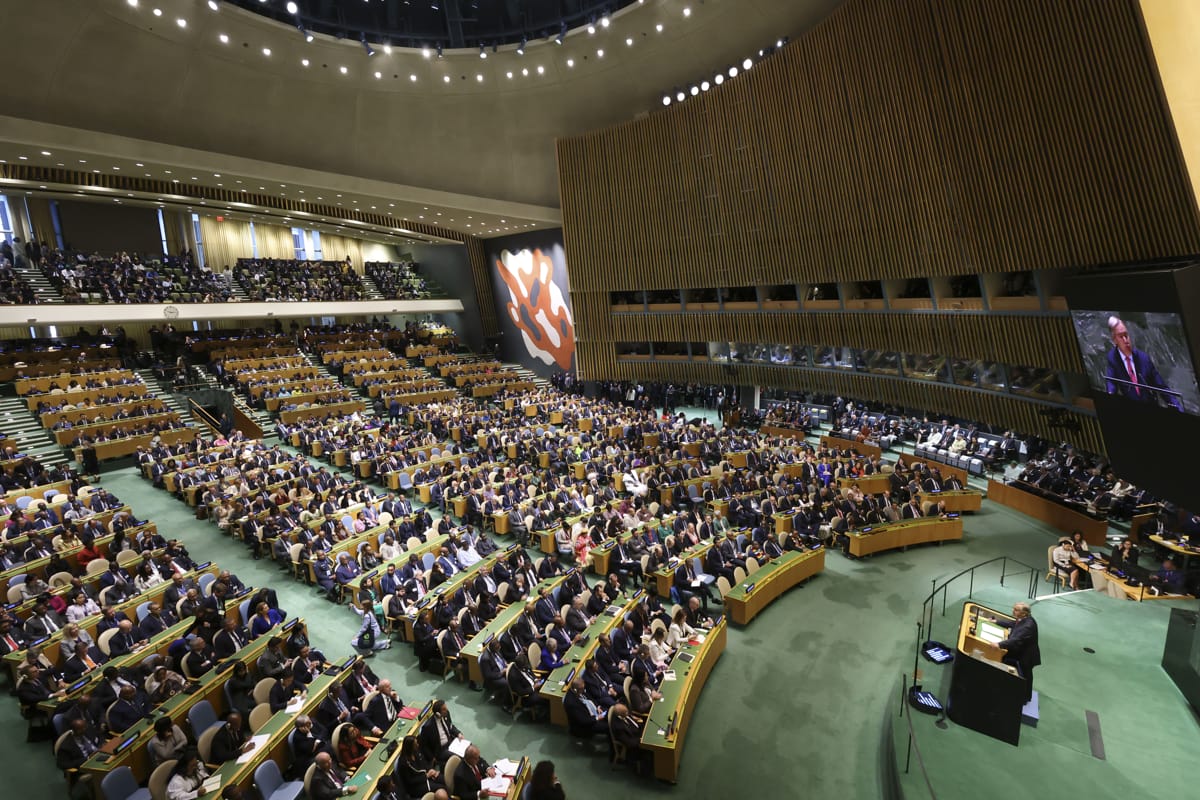“The United Nations will not reform itself,” Australia’s Foreign Minister Penny Wong told delegates gathered in New York last month for the Summit of the Future.
“This is a job for all of us.”
The day before, the UN had adopted the Pact for the Future, a landmark commitment that aims to restore confidence in the organisation’s relevance in addressing the challenges ahead. Having been long bedevilled by declining global significance and perceived ineffectiveness, the adoption of the Pact reaffirms the UN’s enduring worth as a forum for inter-governmental cooperation.
It also followed the recent announcement at the Hamburg Sustainability Conference that the UN Secretary-General António Guterres will appoint a UN Envoy for Future Generations.
These actions are a direct response to the UN’s SOS for a new global consensus on how to safeguard the future, grounded in allegiance from all nations to make good on their commitments.
But the UN Member States have made sweeping gestures at shifting the world onto a more sustainable path before – in 2000, with the Millenium Development Goals, and in 2015, with the Paris Climate Agreement and Sustainable Development Goals. Fast forward to today, and governments are still woefully off track on both initiatives.
So why will the Pact for the Future be any different?
I witnessed how multilateralism can be reduced to little more than high-stakes theatre without a commitment from states to put words into action.
This time around, the stakes for humanity could not be higher. As Guterres declared, the Pact comes at an “inflection point in history”, with the planet approaching an irreversible threshold of global warming, spiralling conflicts, and threats to social cohesion. Multilateralism is the only practical solution for most of these interconnected challenges.
But multilateralism is nothing new. This much was reinforced by my time as a Special Youth Representative to the UN Summit last month. Drawn to the global stage by a desire to bridge the gap between global efforts and community-driven action, the experience was a sobering reminder that multilateralism is only as strong as the backbone of locally led initiatives that power it.
I witnessed how multilateralism can be reduced to little more than high-stakes theatre without a commitment from states to put words into action and tailor their policies to the local needs of communities.

The Pact opens up new responsibilities and opportunities for revitalised multilateral cooperation. Its 56 recommendations aim to protect the needs and interests of present and future generations range across themes of security, sustainable development, digital cooperation, human rights, gender, youth, and more.
As ever though, the ability to back up such ambition rests on the shoulders of domestic policymakers. Short-term focus, whether on electoral cycles or staying in power, shackles long term planning. Fortunately, however, there is growing evidence, in Australia at least, to suggest conditions favouring long-term policies that prioritise intergenerational equity have begun to germinate.
A recent EveryGen survey revealed that 97% of Australians believe in the importance of policies considering the interests of future generations, while 81% feel that Australian politicians focus too much on short-term decisions. This has been evident in New Zealand, too, with the adoption in 2019 of a Wellbeing Budget providing valuable lessons to draw on.
Strong foundations exist for Australia to contribute to strengthening the UN for the next era. Our ability to do so will depend on reconciling our approach with our rich Indigenous heritage and fostering intergenerational collaboration through national frameworks like “Measuring What Matters”. The common denominator here is leaning into long-term thinking for better policy.
As Australia and other nations prepare to convene for the next round of international meetings, the litmus test will be applied in November, with progress to be reviewed at the Dubai Futures Forum and COP29 in Azerbaijan. The Pact must mark a launchpad in this global effort, not the finish line.

